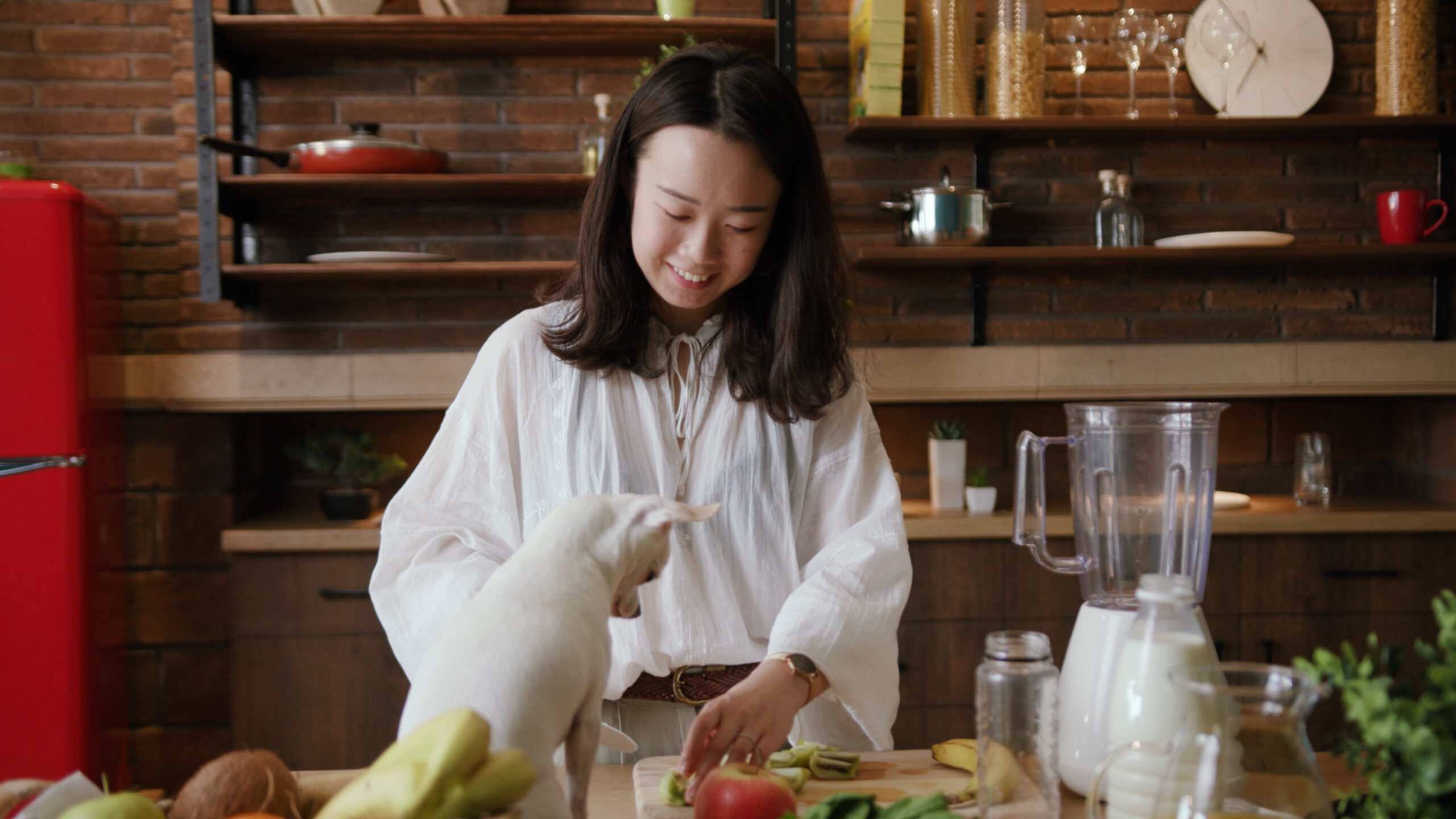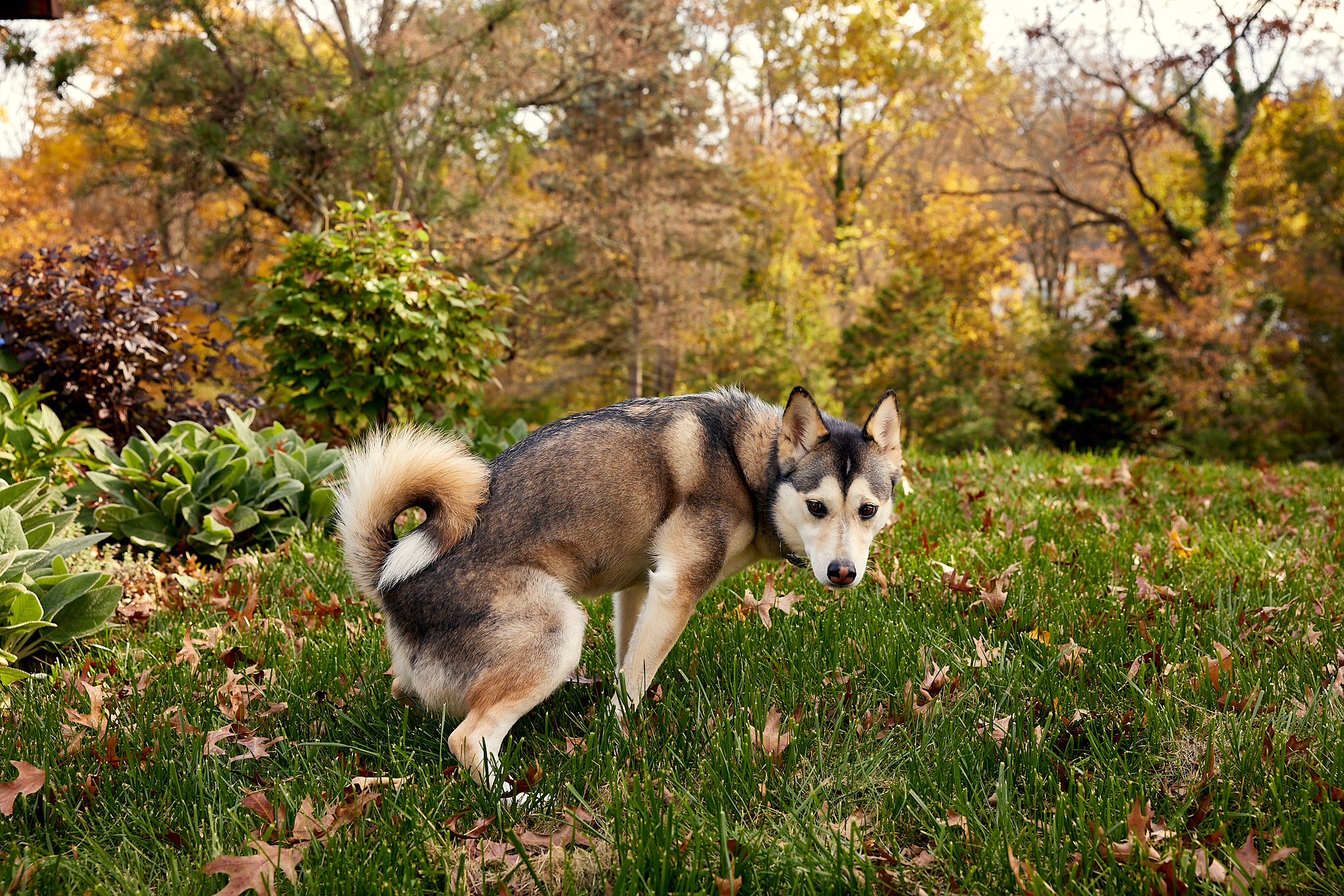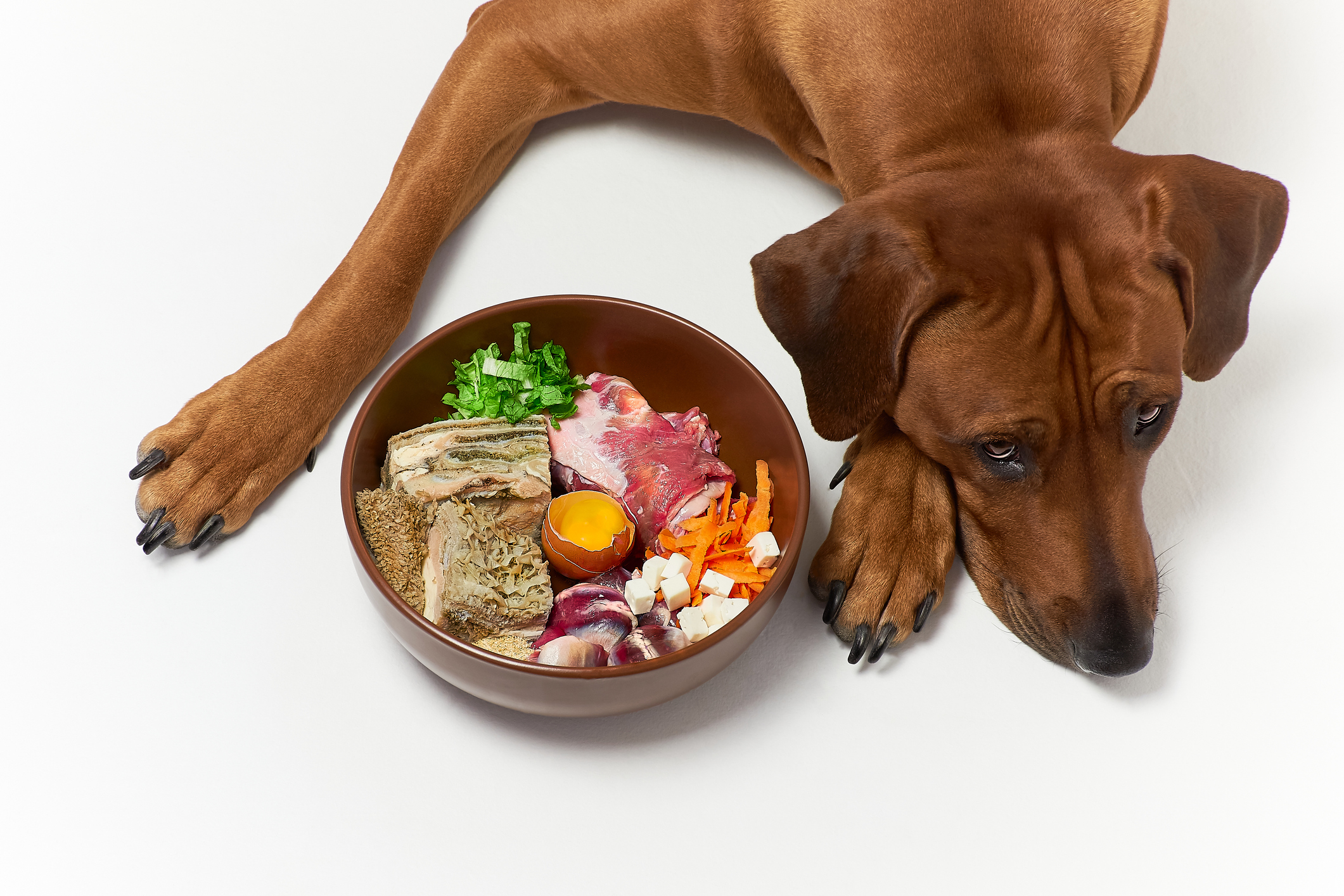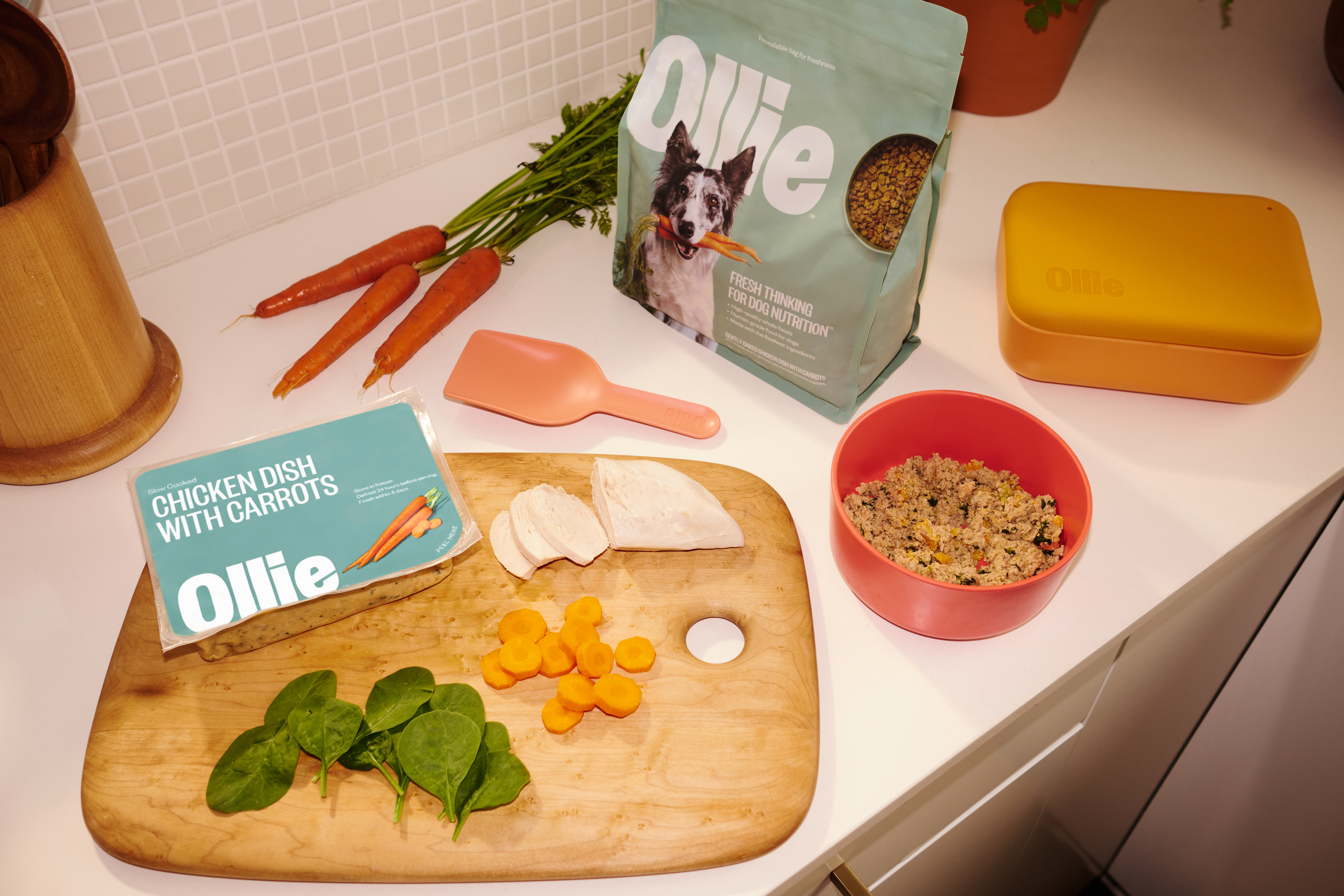Hey Ollie blog readers! We’re offering you an exclusive 60% OFF your starter box! Try now!
Although home cooking for your pup sounds like an intuitive and heartwarming way to serve up optimal health through fresh whole ingredients, there are many things you need to know about homemade food for dogs.
For starters, home cooking for dogs isn’t simple or easy—in fact, it’s incredibly complex.
Dogs require complete and balanced nutrition at every meal, including 42 essential nutrients in carefully calculated amounts. These strict standards are set by regulatory pet food agencies and determined by researchers, veterinarians, and veterinary nutritionists.
While your dog may appreciate the taste of home-cooked food, unbalanced nutrients, incorrect ingredients, and improper ratios can negatively affect their long-term health. Worse still, such changes are subtle—some nutritional deficiencies may take three to four weeks to appear, while others may not be apparent for years.
What is home cooking for dogs?
Home cooking has recently grown in popularity as devoted dog owners recognize the link between nutrition and their pup’s health and longevity and seek more control over what goes into their dogs’ bowls. But, feeding your dog a homemade diet is more than simply sharing a portion of your plate—it involves sourcing, preparing, and serving your dog homemade meals in lieu of commercially manufactured dog food.
Home-cooked diets are typically made in the dog owner’s kitchen using familiar human food ingredients such as meat, vegetables, whole grains, and ideally, nutritional supplements. Well-designed home-cooked meals can be customized to support a dog’s health needs, dietary restrictions, or individual preferences.
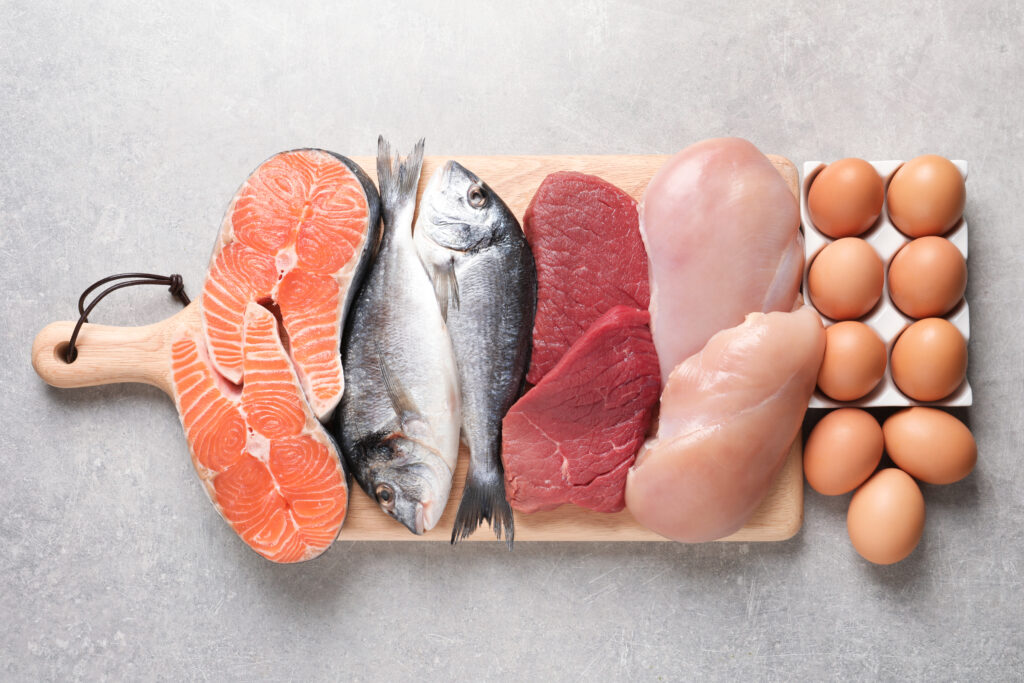
What nutritional gaps might exist with home cooking?
According to a dog food recipe analysis by the University of California, Davis, School of Veterinary Medicine, 190 out of 200 homemade dog food recipes found online, in pet care books, and veterinary textbooks lacked at least one essential nutrient, and 170 recipes had multiple deficiencies. The most common nutritional gaps included:
- Micronutrients — This includes zinc, copper, iron, calcium, choline, Vitamins D and E, taurine, and many others. Insufficient micronutrients can lead to serious health complications including musculoskeletal problems, liver dysfunction, and heart disease.
- Calories — Because it can be difficult to accurately determine caloric content in home-prepared food, owners tend to feed homemade recipes by volume rather than daily caloric needs, which can leave pets hungry or overweight.
Long-term feeding of an imbalanced diet can have disastrous health consequences, especially for puppies and pregnant or lactating dogs who have highly specific nutritional needs to support growth and development.
Does homemade dog food need supplementation?

To achieve complete and balanced nutrition at each meal, homemade dog food must include concentrated supplements. This ensures an accurate and precise nutrient profile for consistent and reliable nutrition. However, because your dog’s needs will vary by the ingredients in their recipe, how those foods are prepared (e.g., steamed, baked, boiled), and any existing health conditions, these supplements and their quantity should be determined by a veterinarian or board-certified veterinary nutritionist.
Do vets recommend homemade dog food?
Most veterinarians do not recommend home cooking for dogs. Despite a dog parent’s best intentions, there is simply too much room for error. Even with a nutritionist-designed recipe, a slight alteration in how the food is prepared or an ingredient substitution can significantly affect the food’s nutritional profile.
If you and your veterinarian agree that homemade dog food is best for your pup, work with a board-certified veterinary nutritionist. These experts will use your dog’s health, age, and lifestyle to formulate a customized, balanced, and complete recipe that you can follow at home.
Is homemade dog food “safe”?
Your dog’s food should be safe for consumption and handling. Unfortunately, this is a potentially concerning area for homemade dog food because of the significant variability in recipe design, ingredient quality, and food preparation.
Potential safety concerns include:
- Toxic ingredients — Many common food ingredients are potentially deadly for dogs, even in small quantities. This includes garlic, onions, macadamia nuts, raisins, grapes, and xylitol—a sugar alcohol found in sugar-free snack foods and peanut butter.
- Contamination — Raw or undercooked ingredients, including meats, fruits, and vegetables, may contain harmful bacteria such as Salmonella. Safe handling strategies (e.g., hand washing, using clean bowls) may minimize this risk.
What are the risks of a home-cooked diet?
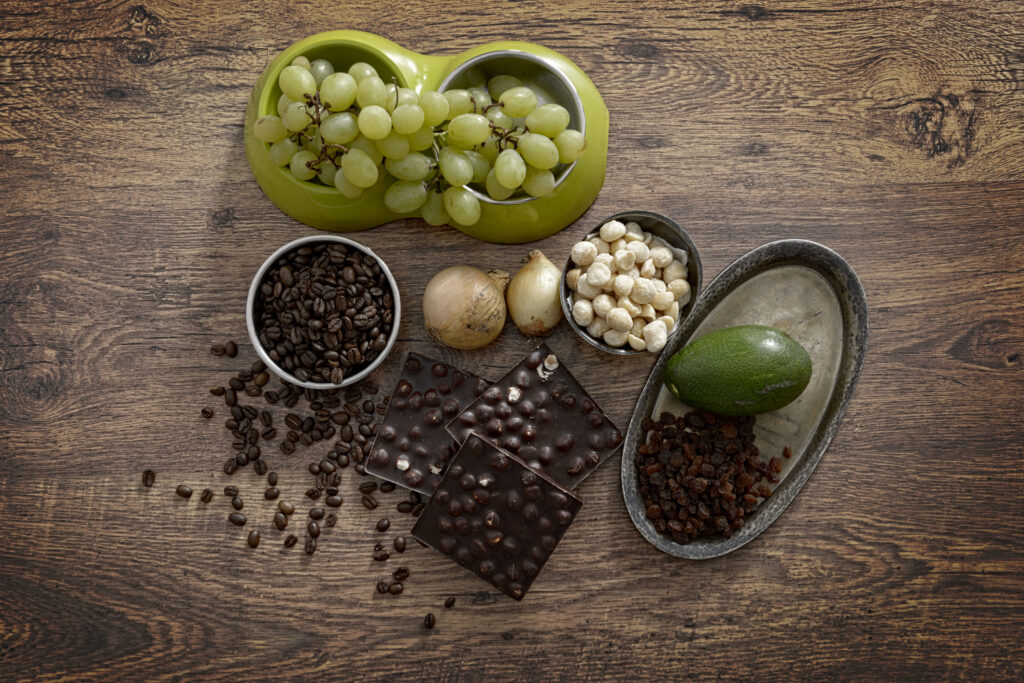
Home cooking for your dog requires more than a trip to the grocery store. Sadly, many well-intentioned dog owners who attempt home cooking on their own make serious mistakes that put their dog’s health at risk. These errors include:
- Failing to use trusted sources — Where does each ingredient originate? How is it grown, raised, prepared for sale, and delivered?
- Feeding imbalanced meals — Nutritionally inadequate food tastes good now, but costs your dog later.
- Using unsafe or unhealthy ingredients — In addition to toxic ingredients, dogs may suffer serious health consequences from consuming rich, fatty, or unfamiliar ingredients.
- Failing to use or modifying a recipe — Canine nutrition is a science. Improvising your pup’s plate can lead to nutrient deficiencies or excesses.
- Providing a generic one-size-fits-all food — No two dogs are alike and neither is their nutrition. Sadly, many owners fail to consider their dog’s health needs and preferences when preparing homemade food.
- Mishandling raw ingredients — Unsafe food handling or storage can lead to bacterial contamination and exposure.
Ollie: Home-cooked sensibility with expert-led design

Ollie fresh food recipes deliver the wholesome experience of home cooking with the peace of mind and confidence of an expert-led nutritional team. From recipe concept and design to ingredient sourcing, preparation, packaging, and delivery, Ollie provides a hassle-free way to nourish your pup with fresh, healthy, familiar, high-quality nutrition.
- Nutrition — Each recipe is designed by a veterinary nutritionist for balance and completion, ensuring it meets or exceeds the AAFCO nutrient profile for dog foods. Every meal is pre-portioned for your dog’s specific needs, ensuring they consume the correct amount of calories for their life stage and health.
- Ingredients — Every Ollie ingredient is carefully sourced and inspected for quality, safety, and consistency. We always know where each component is coming from and only collaborate with vendors who meet our high standards.
- Convenience — Home cooking is labor intensive. Ollie eliminates the need for time-consuming shopping, research, and meal prep.
- Complete and balanced design — No need for additional supplements, we add precise vitamin and mineral quantities to balance each recipe.
- Cost — Cooking for your dog can get expensive fast, especially with high-priced items such as meat and supplements, not to mention the time you spend preparing weekly meals. By comparison, Ollie recipes provide an economical and time-saving alternative and may eliminate the need for a veterinary nutritionist consultation.
- Expert support and guidance — From recipe selection to meal plan design and transition planning, our expert team is available for one-on-one coaching and support. Whether your pup’s Ollie journey is just beginning or your dog has enjoyed our food for years, our Canine Support Center experts are available by phone, email, text, or live chat to ensure the best possible experience.
Ollie fresh recipes provide home-cooked benefits with the confidence and convenience of veterinary nutritionist formulated recipes, an unfailing commitment to quality, and ongoing and knowledgeable support.
Learn more about our recipes and sign up now to receive 50% off your dog’s first Ollie box!
Tagged As:

The nutrition your dog needs,
the food they want.

Enjoying our articles? Subscribe our Newsletters and get new articles directly to your inbox
You might also like
3 July 2025
5 MINS READ
How Fresh Food Can Help Your Dog Have Perfect Poops
As a pup parent, you’re likely very familiar with your dog’s bathroom habits. While it may not be the most glamorous part of taking care of your pup, a dog’s stool can be one of the most dir…
by Ollie Pets
3 July 2025
5 MINS READ
Understanding the Risks of Raw Dog Food
When it comes to choosing the right diet for your dog, understanding the full picture is crucial for making an informed decision. In this article, we’ll dig deeper into what defines a raw diet, …
by Ollie Pets
3 July 2025
4 MINS READ
Understanding a Balanced Diet for Your Dog
As a dedicated pet parent, you want to provide the best for your dog, and that starts with their food bowl. We all understand the basics of a balanced diet for ourselves, but what does that look l…
by Ollie Pets
